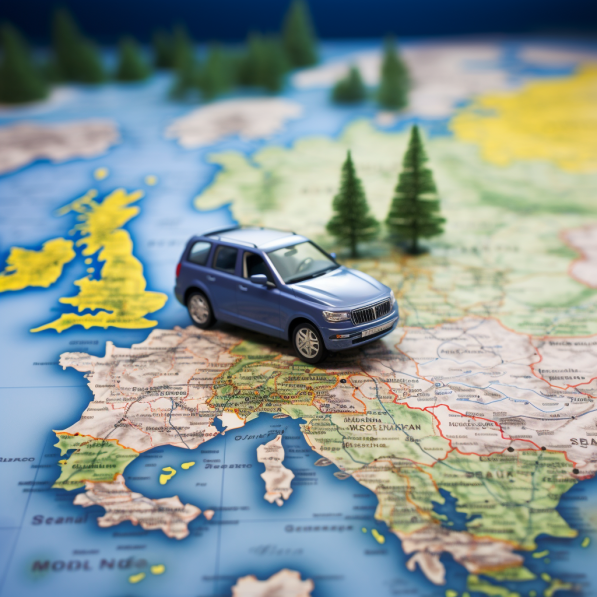checklist for european travel
Welcome to your essential Checklist Guide for European travel! Planning a trip to Europe can be both exciting and overwhelming, but with the right preparation, your journey can be a seamless and unforgettable experience.
This comprehensive Checklist for European Travel is designed to help you pack smartly and ensure you have all the essentials covered. From important documents to personal items, we’ve meticulously compiled everything you might need. Whether you’re a first-time traveller or a seasoned explorer, this checklist will serve as your go-to guide for a hassle-free European adventure. So, let’s get started and make your travel experience as smooth and enjoyable as possible!
European Travel Checklist
Essential Documents
- Passport with at least 6 months validity.
- Visas, if required.
- Travel insurance documents.
- Flight tickets.
- Accommodation booking confirmations.
- Emergency contacts and addresses.
Money Matters
- Euros or local currency.
- Credit/debit cards.
- Cash in small denominations.
- Wallet or money belt.
Clothing and Accessories
- Comfortable walking shoes.
- Weather-appropriate clothing.
- Sunglasses and hat.
- Lightweight backpack or day bag.
- Umbrella or raincoat.
Electronics
- Smartphone and charger.
- Universal travel adapter.
- Power bank.
- Camera and accessories.
- Headphones or earbuds.
Health and Safety
- Basic first-aid kit.
- Prescription medications.
- Hand sanitizer and masks.
- Sunscreen and insect repellent.
- Health insurance card.
Personal Items
- Toiletries and personal hygiene products.
- Travel-sized shampoo and soap.
- Toothbrush and toothpaste.
- Hairbrush or comb.
- Deodorant.
Miscellaneous
- Travel guidebook or maps.
- Notebook and pen.
- Snacks and water bottle.
- Language phrasebook.
- Travel pillow and eye mask.
Pre-Travel Checklist
- Notify bank of travel plans.
- Check passport and visa requirements.
- Arrange pet or house care.
- Set up email auto-responder.
- Double-check all bookings and reservations.
On the Go
- Keep important documents accessible.
- Stay hydrated and rested.
- Be aware of local customs and laws.
- Keep belongings secure.
- Enjoy and explore!
And there you have it – your complete European Travel Checklist! As you set off on your European adventure, remember that the key to a fantastic trip lies in preparation and flexibility. With this checklist in hand, you’re well-equipped to navigate the diverse and rich experiences that Europe has to offer.
Tips for European Travel
Roaming and SIM Cards
Staying connected is crucial when traveling in Europe. You have several options:
- Local SIM Cards: Buying a local SIM card upon arrival can be the most cost-effective way to get data and local calling rates. Most European airports and shops offer SIM cards tailored for tourists.
- Roaming Plans: Before leaving, check with your current mobile provider for international roaming plans. Some providers offer special packages for Europe that can be more convenient than changing SIM cards.
- Free Wi-Fi Spots: Europe is dotted with free Wi-Fi zones, particularly in public spaces, cafes, and hotels. However, always be cautious about security when using public Wi-Fi networks.
Packing Essentials
Packing smartly can significantly enhance your travel experience in Europe:
Adapters and Chargers
- Types of Outlets: Europe predominantly uses type C, E, and F outlets. Type C is the standard “Euro” plug, while types E and F are common in countries like Germany, France, Belgium, Poland, and more.
- Voltage Differences: European voltage is typically 220-240V, which differs from the 110-120V standard in countries like the USA. Ensure your devices are compatible or have a voltage converter.
- Universal Adapters: Invest in a universal travel adapter that covers multiple plug types. This is especially useful if you’re visiting several countries with different outlet types.
- Portable Chargers: Carry a portable power bank for charging your devices on the go, especially during long day trips or when a power source isn’t readily available.
Health and Safety
Your health and safety are paramount during your travels:
- Travel Insurance: It’s advisable to have travel insurance that covers health emergencies, trip cancellations, and lost luggage.
- Local Emergency Numbers: Familiarize yourself with the local emergency numbers (112 is the general emergency number in the EU).
- Basic First Aid Kit: Pack a small kit with essentials like band-aids, pain relievers, and any personal medications.
Money Matters
Efficiently managing your finances is key while traveling in Europe:
- Notify Your Bank: Inform your bank about your travel plans to prevent your card from being blocked for suspicious overseas transactions.
- Local Currency: While the Euro is widely used, countries like the UK, Switzerland, and others have their own currencies. Carry some local currency for small purchases.
- Budgeting Apps: Use apps to track your expenses and manage your budget effectively.
Cultural Etiquette
Respecting local customs will enrich your travel experience:
- Greeting Customs: These vary significantly across Europe, from handshakes to cheek kisses.
- Tipping Practices: Tipping isn’t mandatory everywhere in Europe, but it’s often appreciated in restaurants and taxis.
- Dress Codes: Be mindful of dress codes, especially in religious or traditional settings.
Transportation Tips
Europe’s transportation network is extensive, offering various options:
- Public Transport: Trains, buses, and trams are prevalent and usually punctual. Consider multi-use tickets or passes for savings.
- Rental Cars: Renting a car gives you flexibility, especially for exploring rural areas. Remember that driving rules and conditions vary across countries.
- Bike Rentals: Many European cities are bike-friendly and offer rental services for short-term use.
Language Barriers
While English is widely spoken, it’s not universal in Europe:
- Translation Apps: Apps like Google Translate can be lifesavers in non-English speaking countries.
- Basic Phrases: Learning basic phrases in the local language can greatly enhance your interactions.
- Body Language: Effective non-verbal communication can help where language barriers exist.
Food and Dining
Europe offers a rich culinary experience:
- Local Specialties: Each region has its own unique dishes and flavors. Don’t miss out on these local delicacies.
- Food Markets: For an authentic and affordable food experience, visit local markets.
- Dietary Restrictions: If you have specific dietary needs, learn how to communicate them in the local language.
Sightseeing and Attractions
Europe is filled with historical and cultural attractions:
- City Passes: Many cities offer passes that provide access to multiple attractions at a discounted rate.
- Off-Peak Visits: Plan to visit popular sites during off-peak hours to avoid crowds.
- Guided Tours: Opt for guided tours for in-depth knowledge and unique perspectives on historical sites.
Staying Connected
Keeping in touch with family and friends is important:
- Social Media: Update your loved ones and share your experiences in real-time.
- Travel Blogs: Consider starting a blog to document your journey and share tips with fellow travelers.
- Local SIM Cards: For longer stays, a local SIM card can be more economical for calls and internet access.
Emergency Preparedness
Always be prepared for unexpected situations:
- Travel Insurance Details: Keep your insurance details accessible in case of emergencies.
- Local Embassy Information: Know the location and contact details of your country’s embassy.
- Backup Documents: Keep digital copies of important documents like your passport and travel insurance.
Sustainable Travel
Travel responsibly and minimize your environmental impact:
- Eco-Friendly Accommodations: Choose hotels or hostels with a commitment to sustainability.
- Public Transport: Opt for public transport over taxis or rental cars to reduce your carbon footprint.
- Support Local Businesses: Engage with local artisans and small businesses to support the local economy.
Driving in Europe Checklist
Driving in Europe: Essential Tips and Checklist
When planning a road trip through Europe, it’s important to be well-prepared to ensure a safe and enjoyable journey. Here are some key tips and a checklist to consider:
1. Important Documents
- Driving License and Insurance: Carry your full, valid driving license and vehicle insurance proof.
- Vehicle Documentation: Don’t forget your V5C certificate (vehicle registration document) and any relevant hire car documentation.
- Passport and Travel Insurance: Always have your passport and travel insurance documents handy.
2. Required Equipment in Your Vehicle
- Safety Gear: Pack reflective jackets for all passengers, a warning triangle, and headlamp beam deflectors.
- Legal Requirements: Some countries require additional items like a first aid kit, fire extinguisher, and replacement bulbs.
3. Pre-Travel Vehicle Checks
- Maintenance: Ensure your vehicle is in good condition – check the engine, brakes, tires, and lights.
- Legal Compliance: Make sure your vehicle’s tax and MOT are valid.
- Emission Standards: If driving in France, you might need a Crit’air sticker to comply with local emission standards.
4. Familiarize Yourself with Local Driving Laws
- Speed Limits and Traffic Rules: Each country has its own set of traffic rules and speed limits. Familiarize yourself with these before you travel.
- Toll Roads: Be prepared for toll roads; carry change or know the electronic toll systems in use.
5. Navigation and Route Planning
- Maps and GPS: Ensure you have an up-to-date road map or a GPS system. Remember, some countries have specific regulations regarding the use of GPS devices.
6. Adjusting to Local Driving Styles
- Right-Hand Driving: Most European countries drive on the right-hand side. Practice and be cautious, especially on roundabouts and during overtaking.
- Parking Regulations: Understand and adhere to local parking rules, which can vary greatly.
7. Emergency Preparedness
- Breakdown Cover: Ensure you have European breakdown cover. Know the emergency numbers and keep them accessible.
- Accident Protocol: In case of an accident, know the local procedures – who to call, how to file a report, etc.
8. Health and Safety
- First Aid: Carry a basic first aid kit for emergencies.
- COVID-19 Precautions: Check the latest travel advisories and health safety regulations related to COVID-19.
9. Adapting to Weather Conditions
- Seasonal Gear: Depending on the season, pack appropriate accessories – snow chains in winter, sun shades in summer, etc.
10. Cultural Awareness
- Local Customs: Be aware of any local driving customs or etiquettes that might differ from your home country.
By following these tips and preparing accordingly, you can ensure a smoother and more enjoyable driving experience across the diverse landscapes and cultures of Europe. Remember, each country has its unique charm and challenges, so embrace the adventure while staying safe and informed!
Get the Downloadable and Printable Driving Checklist Here
OTHER USEFUL RESOURCES FOR A TRAVELLING CHECKLIST:
Checklist for Traveling with Toddler
Checklist for Travel with Baby
Checklist for Kids Travel Insurance






